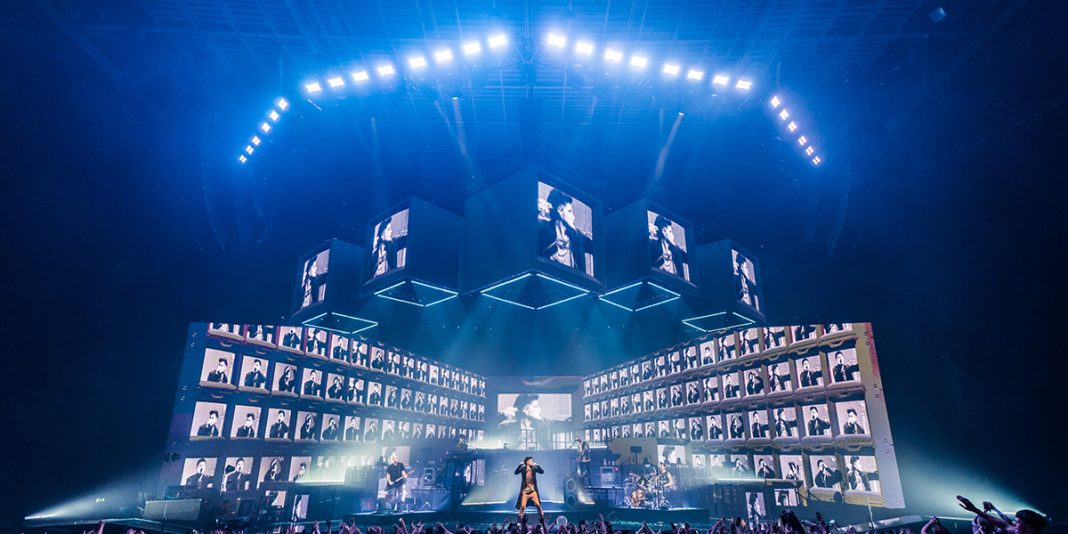With the world of live events returning to the masses, Irish three-piece The Script set out on the road with a brand-new production design, courtesy of MIRRAD. The dynamic show boasted a huge amount of LED surfaces as well as automated video cubes hung above the band.
MIRRAD’s Jamie Thompson and David Cohen picked up the story: “This tour was a ‘greatest hits’ campaign, drawing inspiration from the band’s past five tours,” began Thompson. “Normally, we have something to draw inspiration from, such as album artwork, but that was not the case this time.”
MIRRAD pitched three concepts to the band, the third of which was based on ’geometric shapes‘. “Unsurprisingly, this was the idea that the band was drawn too,” laughed Thompson. “This meant designing a show without any real artistic direction, which was quite difficult.”
MIRRAD, in collaboration with BlinkinLab – which provided content – created 17 complete original treatments for the band’s set. Aiding the duo in creating the show was the new Avolites D9. Marketed as an integrated visual controller with video built into its DNA, it seemed like the ideal tool for a show which had around 700sq m of LED surfaces.
As long-time Avolites users, it was only natural for MIRRAD to adopt the new surface to integrate with the Ai servers that were specified for the tour. “I think we took orders for one of the very first Avolites Sapphire Touch consoles a decade ago, so it’s nice to have a new board to work with,” stated Thompson.
“Heading into such an intensive design period on a new desk was daunting and there was an adjustment period as I had to familiarise myself with where all the buttons were on the desk. That said, it’s great to have a package that works straight out of the box and I didn’t need to call tech support once.”
Cohen mused on how having both video and lighting on the same platform added a level of synergy that you ‘don’t get using other platforms’. “We were able to have all the camera feeds on the desk, ideal for us as there are a lot of integrated IMAG looks with content on various screens on stage and in the air.”
Thompson also commented on the brand-new software updates that were used heavily during the show. “’Timeline’ is a phenomenal feature on the desk and makes it so much easier to deliver a show of this size,” he noted.
There were three different video products out on the show including PRG PURE10 transparent screen along with ROE Visual MC7 AND MC12 LED panels. Fixture wise, the designers selected PRG Icon Edges, GLP JDC1 and Robe Tetra 2. In tandem with the PRG GroundControl system, Claypaky Scenius Unico were used for Spots.
“Like most productions, there was a case of having to work with what was available,” stated Cohen, commenting on the issues facing the industry, particularly with the supply chain.
“Now the project is behind us, I’m glad we went with this concept-heavy show design,” concluded Thompson. “It worked well and was a very successful tour.”
This article originally appeared in issue #270 of TPi, which you can read here.






